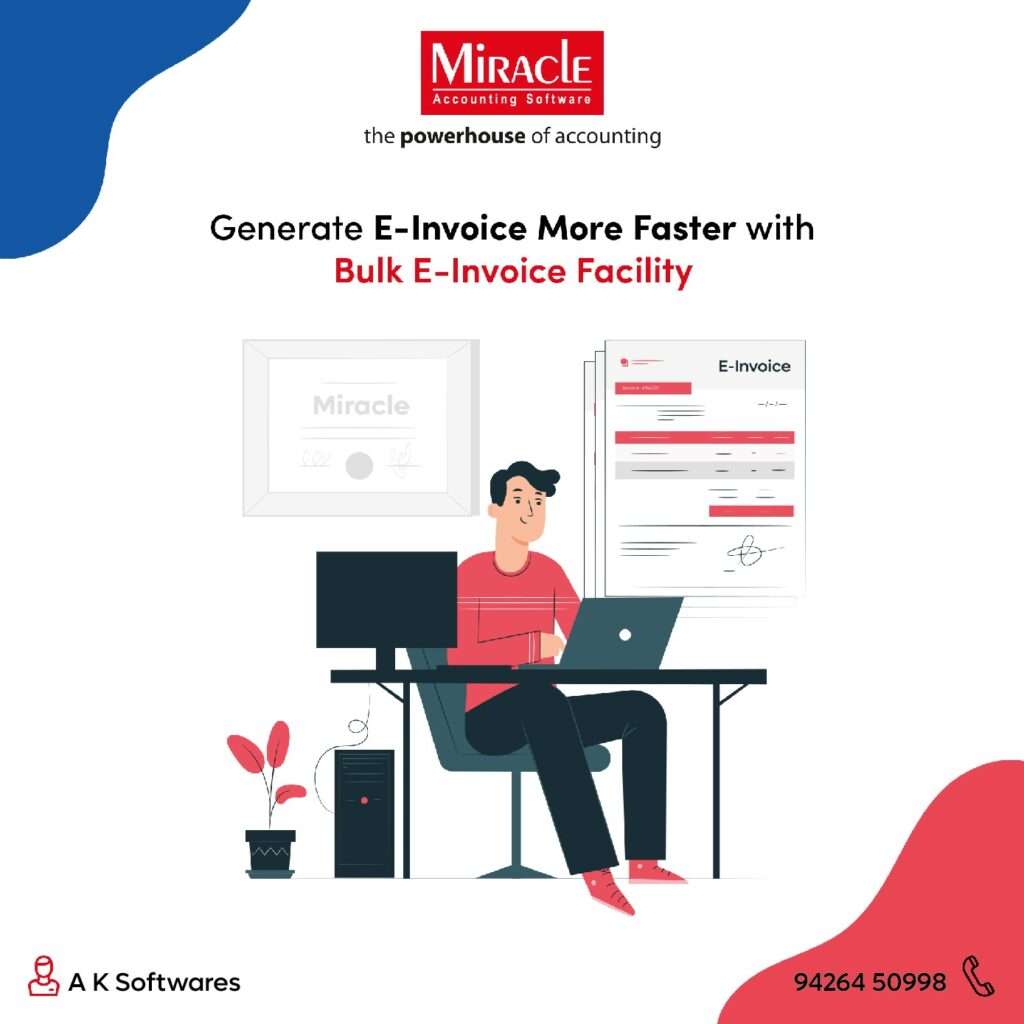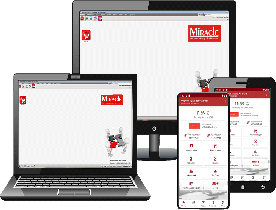Generate E-Invoice faster with Bulk E-Invoice Facility
Introduction
India’s rapid technological advancements have paved the way for numerous digital transformations in various sectors, and one such development that is revolutionizing the country’s business landscape is Electronic Invoicing or E-Invoicing. With the aim of simplifying and streamlining the invoicing process, the Government of India introduced E-Invoicing as part of its broader digitization initiative. This blog will delve into the concept of E-Invoicing, its benefits, challenges, and the impact it has on businesses in India.
Understanding E-Invoicing
E-Invoicing is a system that enables businesses to generate, exchange, and authenticate invoices electronically in a standardized format. In India, the E-Invoicing process is facilitated through the Goods and Services Tax Network (GSTN) portal, making it a fundamental part of the GST ecosystem. Launched on October 1, 2020, the mandate initially applied to businesses with an annual aggregate turnover of over Rs. 500 crore and was subsequently extended to businesses with lower turnovers.
How E-Invoicing Works
- Generation: Businesses create invoices using their accounting or billing software in the prescribed format compatible with the GSTN.
- Registration: These invoices are uploaded to the Invoice Registration Portal (IRP), where they are assigned a unique Invoice Reference Number (IRN) and a QR code.
- Authentication: The IRP then digitally signs the invoices and returns them to the supplier with the IRN and QR code, confirming their authenticity.
- Transmission: The authenticated invoices are then shared with the recipient, who can view and download them for record-keeping.
- Reporting: The invoice data is automatically populated into the GST returns of both the supplier and recipient, ensuring seamless tax compliance.
Benefits of E-Invoicing
- Increased Efficiency: E-Invoicing eliminates manual data entry, reducing the chances of errors and speeding up the invoicing process. This efficiency translates to faster payment cycles and improved cash flow for businesses.
- Reduced Tax Evasion: The standardized and automated nature of E-Invoicing makes it challenging for businesses to manipulate invoices for tax evasion purposes. It enhances transparency and aids tax authorities in monitoring transactions effectively.
- Seamless Compliance: Since E-Invoicing data is directly integrated into GST returns, businesses can easily comply with tax regulations, minimizing the burden of manual compliance procedures.
- Cost Savings: With reduced paperwork, postage, and storage costs, businesses can save on administrative expenses, making operations more cost-effective.
- Enhanced Data Accuracy: Manual data entry errors are common in traditional invoicing. E-Invoicing significantly reduces such errors, ensuring accurate data records and financial reporting.
Challenges and Concerns
While E-Invoicing brings several advantages, its implementation is not without challenges:
- Technological Infrastructure: Small and medium-sized businesses may face difficulties in adopting E-Invoicing due to inadequate technological resources and infrastructure.
- Compliance Complexity: The E-Invoicing system requires businesses to adhere to strict data formatting rules and frequent updates in compliance norms, which could be overwhelming for some.
- Initial Investment: Businesses must invest in compatible accounting software and update their systems to ensure seamless E-Invoicing integration.
- Internet Connectivity: India’s vast geography poses challenges in accessing stable internet connectivity, hindering real-time invoice transmission.
Conclusion
E-Invoicing marks a significant step towards India’s digital transformation journey, streamlining business processes and promoting transparency in commercial transactions. The benefits of increased efficiency, reduced tax evasion, and seamless compliance make it a valuable tool for businesses across the country. While challenges exist, the long-term advantages of E-Invoicing are expected to outweigh the initial hurdles, fostering a digital ecosystem that paves the way for a more robust and modern Indian economy. As technology continues to evolve, businesses can anticipate further improvements in E-Invoicing processes, enabling even greater efficiency and effectiveness in the future.
Effortlessly manage your invoicing tasks with the Bulk E-invoice Facility in Miracle accounting software. Experience the power of automation and speed up your e-invoice generation.
Contact us today at 094264 50998 for a free demo of Miracle Accounting Software with all features






